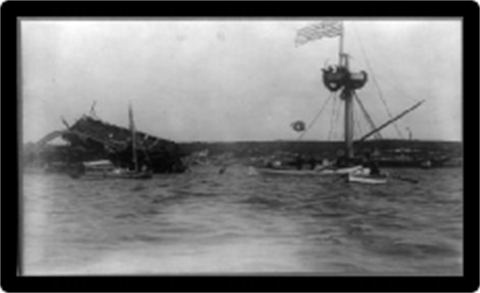The Spanish American War and Philippine Wars

On December 1, 2021, the Office of Planning and Preservation published a list of Spanish American War veterans and veterans of the Philippine Wars.
The February 15, 1898 explosion that sank the U.S.S. Maine in Havana Harbor, Cuba killed 268 of its crew and sparked hostilities between Spain and the United States, which had long supported revolts in Cuba and the Philippines to break from Spanish rule.
“Remember the Maine” became a call to arms in the Spanish-American War, and Morris County residents were among the heroes and casualties of a series of conflicts that began in Cuba and continued into the Philippines for years later.
If you notice errors, omissions, or have additional information, please contact Jan Williams at: jwilliams@co.morris.nj.us